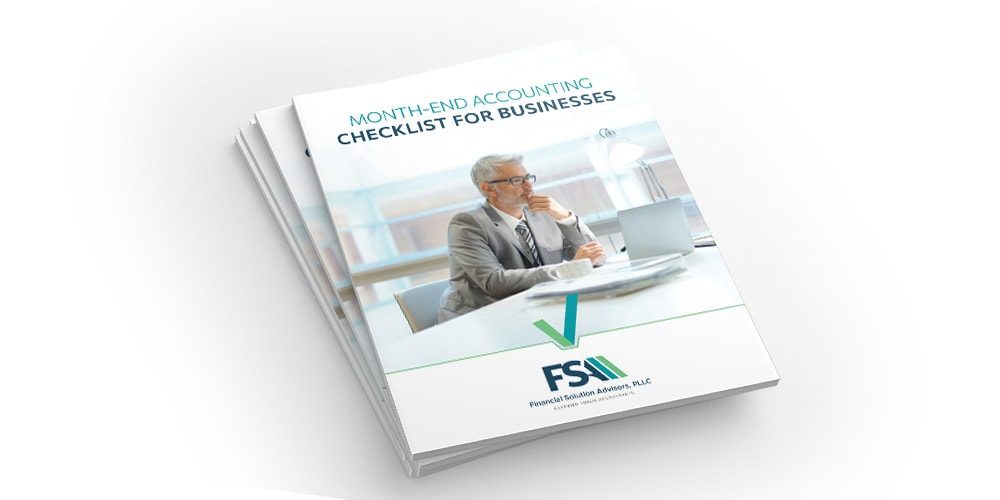As a small business owner, it’s important to have a strong grasp of your finances—the ins and outs (literally) of your cash flow, budget, assets, and liabilities. To do so, you’ll need to follow some basics of small business accounting by keeping a complete record of all business income and expenses and accurately extracting financial information from various business transactions.
Internal bookkeeping processes
The first step in setting up your small business books is establishing your internal accounting system. Here are some crucial considerations:
Choose your accounting method
When setting up an accounting system, you need to choose how you are going to record income and expenses—cash basis or the accrual basis:
- Cash-basis accounting: Record income only when the buyer has paid for the order and the money is in your account.
- Accrual accounting: Record income when the money is earned, but not necessarily received. You’ll need to use a double-entry accounting system, recording two entries for every transaction.
Read more: Accrual vs cash accounting
Recording transactions
As a small business owner, you can record business transactions by:
- Hiring an accountant
- Recording transactions by hand
- Using accounting software that pulls transactions directly from your bank and credit cards
Itemizing and classification
For accurate bookkeeping, you need to set up proper classification terms for everything that touches the books: from employees to contractors, types of expenses, and sources of income. Most business expenses are partially or fully tax-deductible, so you need to classify them correctly in order to take advantage of tax-saving opportunities.
Review your books monthly (at least)
It’s critical to review your finances regularly to maintain control, ensure accuracy, and save time and money. Reviewing finances monthly may be enough for small businesses, start-ups, or businesses with fewer transactions. For firms in a period of growth or with a substantial number of monthly transactions, it may be necessary to conduct weekly or even daily reviews.
Read more: 5 reasons to review your business finances on a monthly basis

Streamline your month-end accounting process with our comprehensive checklist.
Download our free Month-End Accounting Checklist to take control of your month-end close.
Financial record-keeping
It’s vital to have detailed books, not only for your own financial management purposes, but also to maintain as evidence should the IRS decide to examine your financial records more closely. Although the IRS audits no more than three years prior, it’s generally recommended to hold on to past tax and financial records for six years; if the IRS does uncover any substantial errors, they have the ability to audit six previous years. We recommend cloud-based accounting apps for our clients so that their books are organized, easily accessible, and more environmentally friendly.
Understand the three major types of financial statements
- Balance Sheet: Provides insights into the business’s net worth at a given point in time by measuring assets, liabilities, and shareholder equity.
- Income Statement: Also known as a profit and loss (P&L) statement, the income statement shows your company’s net income or loss over time.
- Cash Flow Statement: Measures the incoming and outgoing cash and provides insights into how much cash you have on hand during a period of time. Your cash flow statement helps you stay on top of these numbers and make informed changes to keep the business afloat.
Read more: 4 accounting best practices every business should follow
Follow the accounting cycle
Once you have your systems set up, you can follow a standard cycle of accounting tasks during the financial year (for most small businesses, this matches the calendar year):
- Analyze financial transactions: Enter transactions pertaining to the business entity into the accounting system.
- Prepare source documents:
- Journal entries showing credits and debits.
- General ledger displaying the current balances in each account and changes made to each account based on past transactions.
- Unadjusted trial balance: The accounts are extracted from the ledger and arranged in a report to test if the total debits equal the total credits.
- Adjusting entries: Prepare any adjusting entries (such as accrual of income and expenses, allowances, depreciation, deferrals, and prepayments) to update the accounts summarized in the financial statements.
- Adjusted trial balance: The final step before the preparation of the business’s financial statements tests if the debits match the credits after the adjusting entries are complete.
- Financial statements: The end product of the accounting system that includes the income statement, statement of changes in equity, balance sheet, statement of cash flow, and notes.
Use accounting software for small businesses
No matter the size of your business, you need the right tools to support the accounting function. Using cloud-based accounting apps helps you automate your processes and stay on top of your finances from anywhere. At FSA, we have worked with hundreds of small businesses to incorporate cloud-based accounting apps into their back offices because we know how beneficial they can be for busy business owners.
Make the most of small business tax deductions
When you own a small business, expenses to keep the business running can add up quickly. However, by keeping a detailed record of all your expenses, you may be able to deduct eligible expenses and reduce your taxable income. Our tax team has created a comprehensive guide of the top small business tax deductions to give you some relief this tax season.
Download our comprehensive Guide to Small Business Tax Deductions.
Does your small business need a professional accountant?
Plenty of small business owners choose to manage their own books, especially with all the recent technology and automation in the accounting field. But, in our experience, it isn’t always the highest and best use of their time. Although technology handles many tasks extremely well, a human element helps you understand what your books are really telling you. Hiring a professional also significantly reduces the potential for bookkeeping errors that can wreak havoc on a small business.
Read more: Five areas where small business owners should seek CPA services outside of tax season
If you’re a small business owner, hiring a professional accountant can save you a lot of time and money, and give you access to valuable financial expertise. With professional assistance, you’ll be able to:
- Make proactive business decisions
- Apply best practices to your accounting operations
- Take advantage of your spending at tax time
- Gain insight into budgeting and how much you can afford to invest in your business
- Anticipate and remedy cash flow issues with the right forecasting
- Complete your tax returns on time
At FSA, we’re here to grow with your small business, helping you stay on track and make the best possible financial decisions. Contact us today to schedule a consultation.

